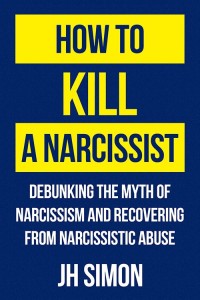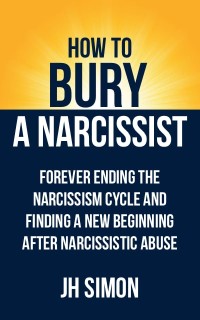The sad reality is that your narcissistic ex was always going to discard you. It is a cycle that was set in motion the second they laid eyes on you. The nature of the discard, however, depends on how they have classified you.
To bolster their grandiose realm, the narcissist must recruit people. Yet not anyone can qualify. This club is exclusive, and has two entry requirements:
- A willingness to provide narcissistic supply.
- Proof of perfection.
For this reason, anyone the narcissist associates with must be useful and/or high value.
The narcissist’s bread and butter is to have a harem of subjects and admirers in their psychological pantheon of targets. If a target is willing to offer attention, sex, resources or services, then the narcissist will idealise them as worthwhile subjects — so long as they remain loyal.
Eventually, the narcissist may grow bored of the target, or the target fails to live up to their initial promise. The target might resist too much, make demands, or worse, offend the narcissist. In other cases, the target’s flaws weigh down the narcissist. In all such cases, the narcissist recoils and quickly discards the target.
Then there are the exceptional ones. Those who possess the beauty, strength, knowledge, status or skill to be truly idealised. The narcissist is immediately struck by such a ‘high value’ person, and looks to merge with them completely. This makes sense when you see it through a narcissistic lens. If the person who enters into a relationship with you is high value, then you too are high value by association.
By devouring the attention, resources, services or status of others, the narcissist can elevate their sense of godhood. The narcissistic realm is a one-person cult consisting of countless subjects and deities. The narcissist is either being worshipped, or worships others as a way to prop up their own grandiosity. The narcissist also idealises people in order to feel safe enough to connect. By imagining a person to be unconditionally loyal or perfect, they can bond with someone who will never leave or disappoint them.
Yet this corrupted religion is just a fantasy in the narcissist’s mind. The narcissist’s entire life is dedicated to feeding their grandiosity. They use real people, exploit real resources, hurt real feelings, and cause real damage — all while buffering themselves from the reality within, which is the self-hatred, shame and rage they internalised in childhood.
This truth is never far away, however, no matter how the narcissist deludes themselves and others. Behind their facade, the narcissist carries a paranoid core, which is always on the lookout for betrayal. If the target deviates from their role in the narcissist’s fantasy, the narcissist will take names. Targets might act recklessly or carelessly and upset the narcissist. They might offend the narcissist, sometimes on purpose, as their patience with the narcissist’s rigidity, perfectionism and controlling nature grows thin. The target might cheat, or they too might carry wounding which compels them to hurt the narcissist in terrible ways. In such cases, the narcissist receives an electrical jolt which causes their fantasy projection to flicker, allowing reality to seep through.
In extreme cases, such as infidelity and other forms of betrayal, the narcissist’s grandiosity becomes irreparably injured. The narcissist responds by deciding that the target is no longer useful or perfect, but rather bad, or even disgusting. Beneath the narcissist’s fantasy realm lies immense paranoia, shame and anger. When you sufficiently betray or disappoint the narcissist, their deeply-repressed toxic dump of trauma oozes out and takes them over. Rather than see this for what it is, the narcissist externalises their pain and discomfort, and directs it toward the target, i.e. the horrible or worthless person. The narcissist decides then and there to discard the target, which heralds in the devalue phase. From this point on, the narcissist lays the groundwork to rid themselves of the other person.
If the narcissist’s life is deeply entwined with you, then the narcissist needs to slowly push you away. So they turn cold and contemptuous, judging, criticising, stonewalling, attacking or ridiculing you at will. Because you are still caught up in the fantasy, this will come as an enormous shock. You will grow flabbergasted, humiliated and sick to the stomach. In some cases, the narcissist may simply ghost you, block you online or move on quickly without another word.
The target, now used to the warmth of the narcissist’s unconditional positive regard, panics and begins questioning themselves during the devalue phase. To get back into the narcissist’s good graces and return to the idealisation phase, they turn up their attempts at appeasement. Their hope is to restore themselves in the narcissist’s eyes, hence re-injecting the relationship with the original ‘idealisation’ drug.
For the target, bonding with your dream person at first feels amazing. However, the traumatised core of the narcissist remains beneath the surface. The target forgets that, in time, all drugs wear off, and the bad feelings re-emerge as the cruel, blistering cold reality asserts itself, and the narcissist’s true nature comes through.















